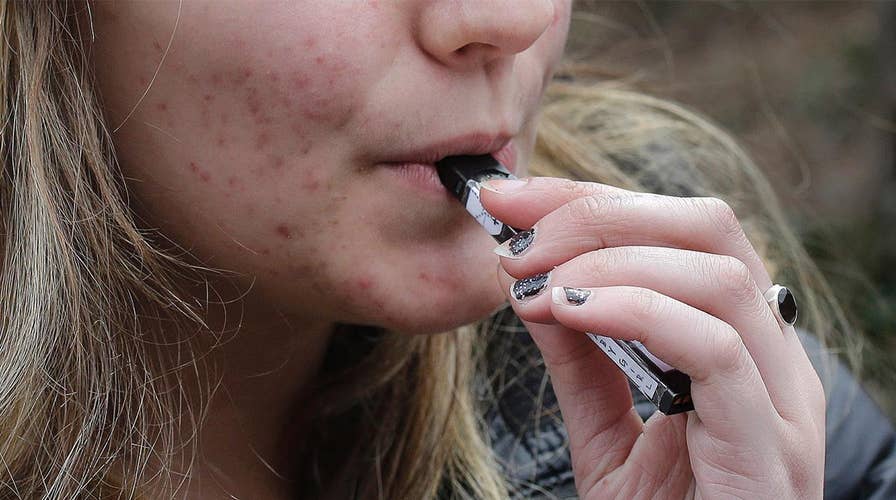Study: Many teens don't realize that they are vaping nicotine
Addiction experts warn this potential lack of understanding might leave young people saddled with the financial burden and health impacts of nicotine addiction.
At least five people in Maryland have suffered “severe” lung illness linked to vaping, state health officials said this week.
The Maryland Department of Health (MDH) announced Wednesday it and the Maryland Poison Center at the University of Maryland School of Pharmacy have confirmed the five cases, though it noted none have been fatal.
“These cases are part of the nearly 200 reported incidents of vaping-related illness in 22 states, resulting in at least one death,” health officials said in the statement.
E-CIGARETTES DAMAGE BLOOD VESSELS EVEN IF DEVICES DON’T CONTAIN NICOTINE, STUDY FINDS
Not unlike similar cases in other states, patients in Maryland experienced shortness of breath, pain associated with breathing, cough, fever, nausea, and vomiting before becoming ill.
“The cases displayed no clear infectious cause and all required hospitalization,” according to the MDH.
While the exact cause of the illnesses is not yet known, nor have the cases been “linked to any particular device, substance or brand,” officials said, those who were sickened reported vaping nicotine and THC — the psychoactive ingredient in marijuana that produces the “high” sensation — prior to their hospitalization.
“This is a serious and potentially life-threatening illness,” said Bruce Anderson, the executive director of the Maryland Poison Center, in a statement. “If you have used e-cigarettes or vaped in the past weeks or months, and you start to have trouble breathing, stop using these products and seek immediate medical attention.”
The news comes as the CEO of the popular e-cigarette company Juul called the nearly 200 cases of vaping-related illnesses “worrisome” — but said his products will stay on the market "until we see some facts.”
VIRGINIA SEES 3 VAPING-RELATED ILLNESS CASES, HEALTH OFFICIALS SAY
The Centers for Disease Control and Prevention (CDC) is investigating the illnesses, which have primarily affected teens. It’s not yet clear if the illnesses are related to Juul devices, specifically.
Though e-cigarettes are often touted as a "safer" alternative to cigarettes, a recent study found that may not be true.
The study, led by University of Pennsylvania researchers, claimed there are damaging effects on a user’s blood vessels after just one use.









































